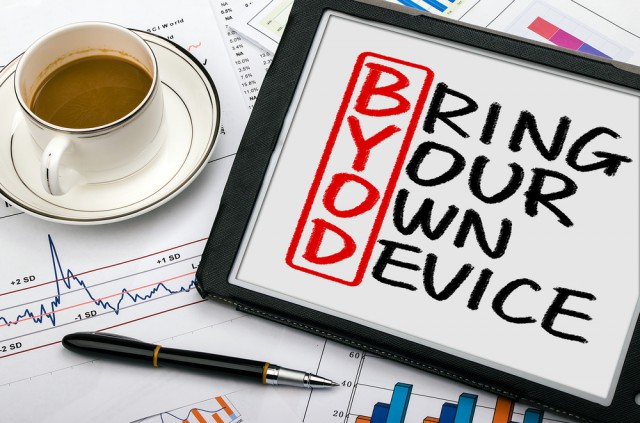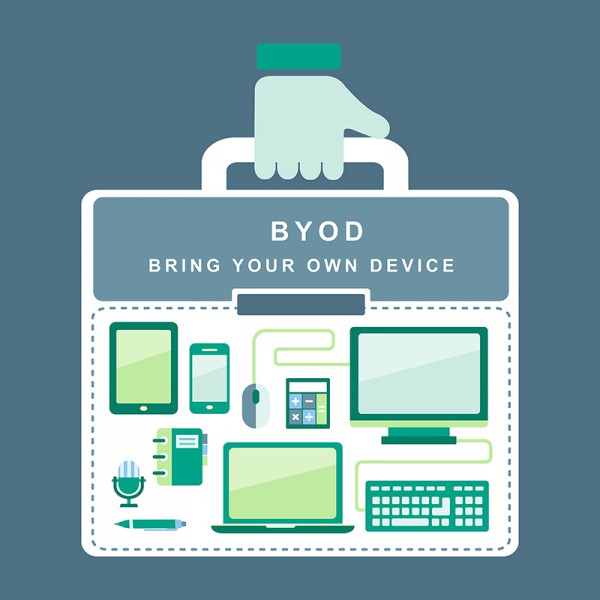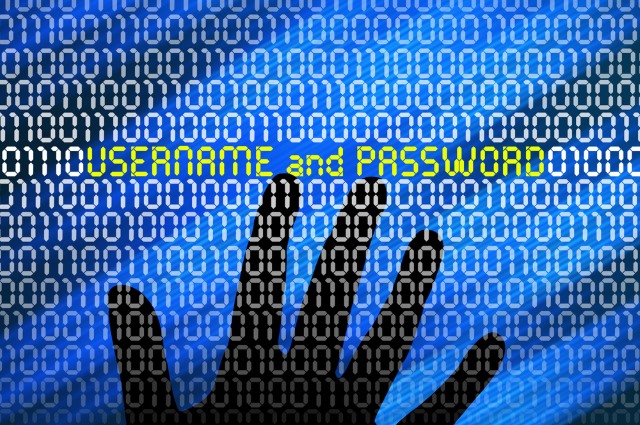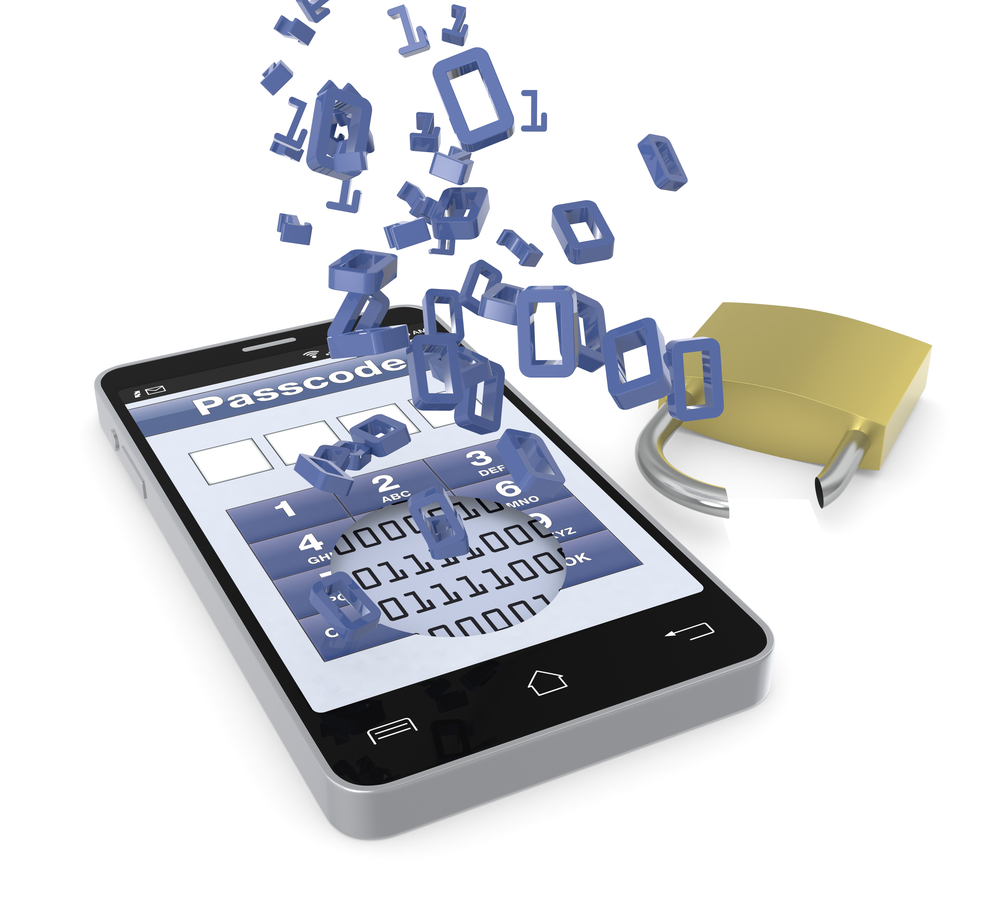
How to take control of BYOD bandwidth use
The trend for increasing numbers of employees and customers bringing their own devices into a workplace can seriously impair a businesses’ access to the Internet.
The problem is that as more mobile devices connect to the network, a business can quickly discover that its cloud-based applications, payments systems, accounting, stock control, customer relationship management (CRM) and business applications have become hopelessly sluggish.

Could your BYOD system be a threat to your business?
Nowadays, practically everyone is connected to the Internet at home, in the office and on the move. This has introduced fantastic opportunities for businesses and employees to operate smarter. Bring Your Own Device (BYOD); the concept of allowing employees to work in the office or remotely using their own devices, rather than company owned, has been around for a while now and really makes the most of this 'personal device era'. It’s convenient for employees to use their own devices, reduces burden on IT admin and saves Capex costs for the business. But, could BYOD end up being the company’s biggest threat?
Employees now have the opportunity to use their own personal devices for work purposes. The thought behind this is that employees are already familiar with their own devices and already have them on hand at all times. BYOD is generally a good thing, but it is not without its challenges and concerns. Like any new development, the risks need to be evaluated. But, in theory, team members will be more productive and happier at work with a BYOD scheme in place.

Employees feel pressure to use personal devices for work
Of employees in the US who use their personal smartphones for work, 45 percent are required to do so by their employers and 55 percent do so voluntarily. However, of those voluntary users 42 percent feel pressured to use their phone for business use outside of work.
This is among the findings of a new survey by platform services company Syntonic which reveals mounting pressure on employees to use their personal devices for work even if not required by their employer.

New software simplifies BYOD management
The US mobile workforce is set to grow to 105.4 million workers by 2020 according to IDC and this creates a challenge for businesses trying to control and secure deployments.
In a bid to make things easier, networking solutions company Brocade is launching its latest Ruckus Cloudpath platform to enable IT organizations of any size to easily establish secure, policy-based access for wired and wireless devices.

Productive and satisfied employees can live inside BYOD containment
When employees started bringing their devices to work with the rise of the smartphone, companies in all industries feared what that would mean for productivity and security. Nowadays, personal devices in the workplace are a given -- so much so that Bring Your Own Device programs (BYOD) are being implemented across the enterprise at an increasing rate.
Unfortunately, those programs come at a price. Organizations that have attempted implement a BYOD program, however are largely failing as employees don’t want the company to control their entire device.

What you need to know about BYOD
With the rise of smartphone technology, BYOD -- or bring your own device -- certainly cannot be ignored by businesses. Whether they endorse the policy of using personal devices for workplace tasks or not, employees will use the best tools, or those they are most familiar with, to complete tasks, which frequently means using their own smartphone.
Of course, this extends far beyond simply taking work calls. Smartphones in the workplace are now being used to access corporate applications and perhaps more importantly, the data that they contain. Disregarding the mobility benefits of BYOD, this raises a number of security risks that businesses must consider.

Mobile games pose a risk to business
Mobile games are increasing in popularity, boosted by augmented reality apps like Pokémon GO. But if individuals are using their devices for BYOD too then these games could present a major security risk.
According to a new study from licensing specialist Flexera Software which tested 60 of the most popular iOS games, 73 percent support location services and tracking. 68 percent support social networking, 58 have calendar access and 54 percent support SMS.

US businesses overspend by $2.6 billion a year on BYOD
Enterprises in the US are overspending by an average of almost $287 per employee each year, due to compliance concerns, confusion in the executive suite over BYOD policy ownership, and lack of visibility into employee mobile usage.
This adds up to a total overspend of $2.6 billion across the country. These are among the findings of a new survey by mobile platform provider Syntonic and Information Solutions Group on BYOD use in the enterprise.

Dashlane streamlines password management for BYOD
Weak passwords can put business data at risk, but if employees are using their own devices, poor security practices from their home life can spill over into the workplace.
Password manager app Dashlane has a solution to this issue in the form of a new Spaces feature for its Business version, which allows employees to manage both their business and personal passwords on mobile devices.

LogMeOnce adds features to track and wipe mobile devices
The increasing use of mobile devices and spread of BYOD means that there’s a risk of data falling into the wrong hands if a device is lost or stolen.
Mobile identity and password management company LogMeOnce is adding new features to its app making it simpler to manage, track and wipe personal and business data from devices.

Three steps to BYOD bliss
BYOD has now become so prevalent that 29 percent of UK secondary schools are now operating some sort of BYOD policy including asking students to bring their own devices. While the enterprise world has been talking about BYOD for years, it’s this kind of mainstream use that confirms BYOD as a way of life, and of business.
While there are clear benefits in terms of productivity for example, unfortunately, security still remains a key concern. In order to take advantage of the potential benefits and avoid the security risks, organizations need to do three core things: develop a robust BYOD policy, choose the right security technology, and support the people using it.

Why IT departments never go on vacation
Admit it, we’ve all been thinking about the summer vacation since the blustery days of winter. Dreaming of destinations, looking at dates and ultimately, sending those out-of-office notices so that everyone knows we’re taking a break and heading out of town!
But while most of us are safe to switch those out-of-office messages on and tune out on our summer trips, IT is an industry that never truly gets a vacation. No matter the time of year, IT departments are always hard at work creating and maintaining the foundation of the modern business world. Among the top reasons why IT never goes on vacation, three are:

Outdated software on BYOD devices puts business data at risk
When people used office workstations managed by the IT department it was relatively easy to manage security because there was a defined perimeter.
In the modern era of mobile devices and BYOD though security becomes much harder. Authentication specialist Duo Security has released a new report on the security health of user devices, based on data gathered from more than two million devices used by businesses worldwide.

Financial services lead the way in BYOD adoption despite security concerns
BYOD is becoming increasingly popular across all industries, but it's the financial sector that's leading the way according to a new report.
The findings come from data protection company Bitglass which surveyed more than 800 cybersecurity professionals across five major industries, including financial services, technology, healthcare, government and education.

The biggest barriers to adopting BYOD
Thanks to the benefits that it offers in terms of productivity and employee satisfaction, BYOD remains a popular option for many companies and the market is predicted to be worth $360 billion by 2020.
But a new report from Crowd Research Partners in conjunction with some leading data security vendors -- including Bitglass, Blancco Technology Group, Check Point Technologies, Skycure, SnoopWall and Tenable Network Security --provides a conflicting portrayal of BYOD security barriers and adoption trends in the workplace.
